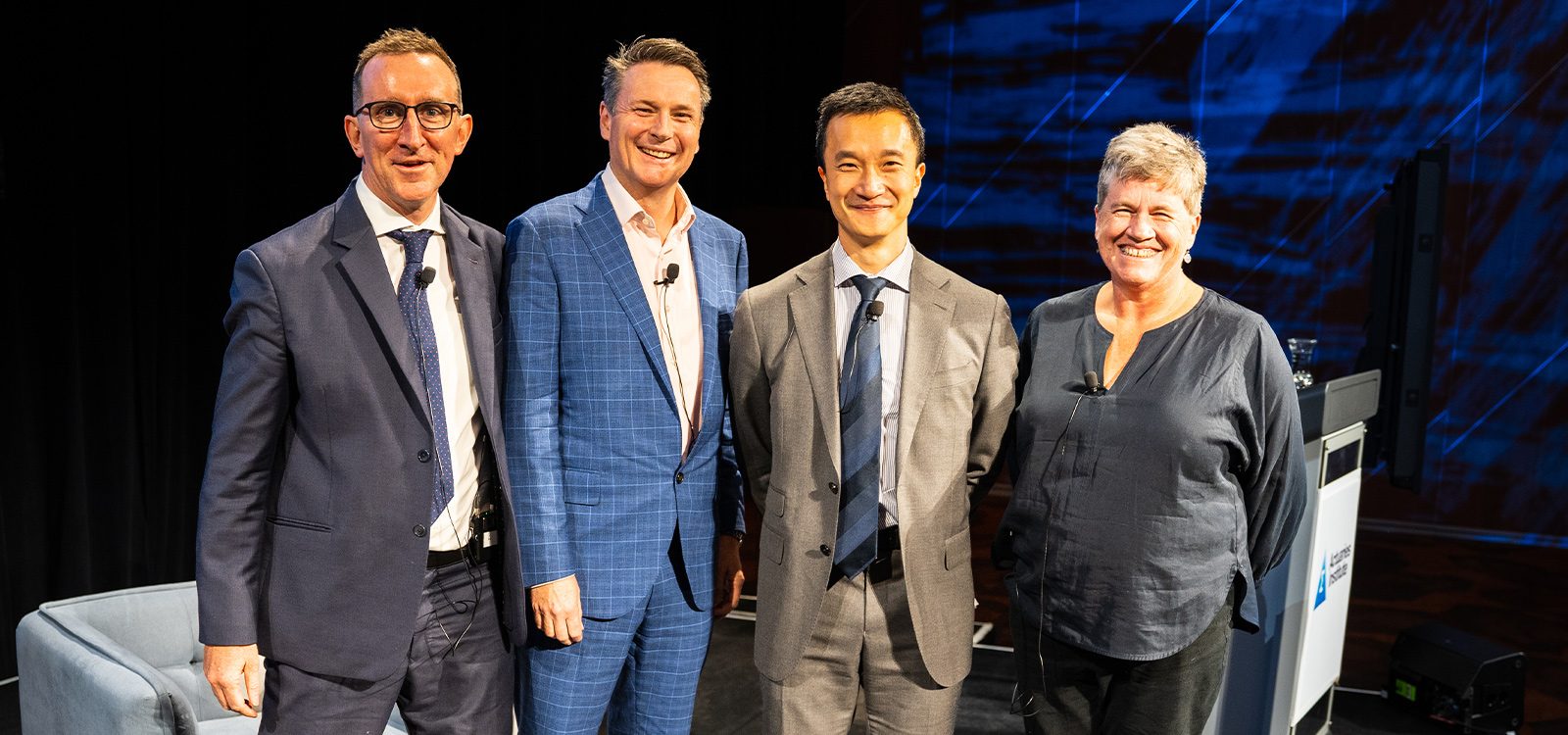
Out of the storm
While the uncertainty and challenges associated with COVID-19 may be subsiding, the final plenary of the 2022 All-Actuaries Summit highlighted that the next shock might be just around the corner.
The session featured cross-practice leaders Andrew Matthews (Finity Consulting), Brett Ward (IAG) and Nghiep Luu (AIA) and was facilitated by Chair Suzanne Pattern (IAG). The panel discussed recent experiences dealing with COVID-19 and reflected on:
- the uncertainty of the environment;
- the experience of navigating the environment; and
- the role of the actuary and how we can use our skills and capabilities to help institutions, consumers, and each other.
Uncertainty
The key theme emerging from the panel discussion was that while the uncertainty and challenges associated with COVID-19 may be subsiding, the next shock is just around the corner. Actuaries with our unique skillset are ideally placed to assist our stakeholders in navigating times of considerable uncertainty. The geopolitical and social environment continues to change so rapidly that it may be the storm is, in fact, permanent, and rapid change and uncertainty are the ‘new normal’ of the business environment.
Brett likened the last few years to a trek in Nepal.
“Every mountain (in Nepal) is just so high, and you’re never quite sure which one’s the tallest!”
This speaks to the intense demands that the insurance industry and the actuarial profession have been under as it pivoted to meet changing community needs and expectations during the bushfire and COVID crises.
The pandemic necessitated a re-think of how insurers respond to changing community expectations, e.g. around life insurance coverage definitions. Supply chain disruptions and inflationary pressures are also emerging as challenges for insurers, impacting cost containment and claims management.
Navigating the environment
The panel reflected on the importance of organisations using stress testing and recovery planning to navigate the pandemic. Nghiep highlighted that while many regulators and organisations have pandemic crisis plans, in reality, the impacts of COVID-19 on organisations were substantially different to what was expected by those plans.
Even though the pandemic played out differently the planning exercise was still a valuable tool for developing the organisational capability to respond to the shock events that we experienced. Brett mirrored Nghiep’s views. While IAG had a pandemic event as a scenario in their recovery plan, no one was using this recovery plan as a playbook but it supported the organisational capability to respond.
The pandemic that we experienced was not a discrete event that required a recovery plan. Rather it was an altered operating environment that required insurers to navigate carefully and strategically with consideration for the consumer. Andrew also reflected on scenario planning more generally and how the discussion around scenario planning within organisations has changed from “what would happen”, to “what should we do”; a pivot from improvising by necessity to improvising by design.
The role of the actuary
The role of the actuary often evolves in turbulent times. Andrew emphasised that the disruption caused by the pandemic has allowed actuaries as a profession to play to our strengths, helping organisations deal with risk and uncertainty. The next disruption is coming, and we can and should prepare for it. While actuaries and our organisations may not like disruption, it allows actuaries to step up and help lead their organisations and clients through the uncertainty.
Nghiep also touched on how actuaries are being asked to frame their advice through a growing societal expectation around choice, transparency and consumer centricity. Actuaries and the insurance industry more generally can expect a significant change in how consumers engage with insurance, with a more direct-to-consumer focus on the selling side and simplifying the way consumers engage with claims management a key to future insurer success.

While COVID-19 has created significant economic challenges, the panel also discussed the social challenges with working from home and maintaining personal wellbeing front of mind. Brett discussed how changing working practices and working from home brought on by the pandemic creates challenges for the professional development for junior actuaries as they attempt to build their personal networks and brand.
The challenges created by COVID-19 have also increased the need for actuarial advice by boards and senior management in order to make timely and informed decisions, with the panel discussing how the increased need for analysis and advice has created resourcing and skills shortages within their organisations.
The audience also raised the question of personal resilience and stress management during the pandemic for panel discussion. A focus and commitment to mental welfare and being ‘match fit’ was how Brett managed his well-being during the pandemic. Actuaries can naturally bring that resilience by maintaining adherence to their ethical standards. Actuaries should pause and ask themselves “Is this the right thing to do?” when the going gets tough. Having a purpose and developing the ‘soft influence’ that you have helps improve collaboration and the capability to drive positive change across your organisation. Actuaries should find their voice and speak to it more, ensuring we engage with the heart and not just the mind when trying to achieve an outcome. The answer to resilience often lies in your connections and relatedness.
Closing statement
Suzanne succinctly closed out the session by quoting Robert F. Kennedy:
“The future does not belong to those who are content with today rather, it will belong to those who can blend vision, reason and courage in a personal commitment.”
Watch below for a creative summary of the plenary session!
| Read further coverage from the 2022 All-Actuaries Summit. |
CPD: Actuaries Institute Members can claim two CPD points for every hour of reading articles on Actuaries Digital.






